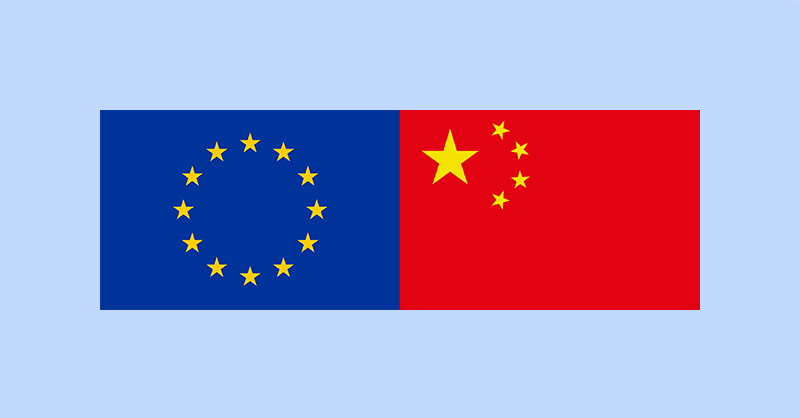EU trade anti-coercion tool faces months of delay over legislators' power struggle
03 January 2023 10:41 by Joanna Sopinska

Wrangling over an EU trade weapon seen as sorely needed to address hostile economic actions by China and other global rivals looks set to be a focal point of 2023 amid an ongoing power struggle over it between EU governments and lawmakers.
Talks will stretch into the coming year on the creation of the so-called instrument to counter economic coercion, intended to help the EU secure trade in high-tech products and strategic raw materials that are critical for its green transition.
The dispute centers on who should have a say over whether a non-EU country’s action can be labeled as economic coercion. When designing the new law, the European Commission assigned this power to itself, saying this was crucial to ensure effectiveness and speed in the decision-making process.
Under this version, the tool would give the commission sweeping implementing powers to retaliate against perceived economic blackmail by a non-EU country and companies or individuals linked to it. The commission would also be able to choose which countermeasures to use from the retaliatory arsenal, including punitive tariffs, import restrictions and market-access bans.
But this idea didn’t fly among all EU governments, with several wanting a say on when to trigger the mechanism. After a few months of intensive wrangling, they agreed on a common position for talks with lawmakers. That position would give them the right to decide through a qualified majority vote when to pull the trigger.
That runs counter to the ambitions of the European Parliament, which is largely backing the commission. In their negotiating position, agreed back in October, lawmakers endorsed the EU executive’s sweeping implementing powers as they sought to ensure the mechanism is fast, efficient, and stays as clear as possible from the politically driven considerations of individual EU governments.
The lawmakers argue that transferring implementing powers to trigger the anti-coercion action from the commission to EU governments increases the risk of politicizing decisions or even seeing potential action blocked, in view of China’s powerful influence on some EU countries.
They say that leaving the commission with only the decision on what countermeasures to use isn't enough, as that second stage may never be reached if the mechanism is not triggered by EU governments in the first place.
Foreign blackmail
Both sides agree that the new anti-coercion mechanism is much needed as some EU countries are already facing economic blackmail by foreign governments, such as China’s trade embargo against Lithuania for allowing Taiwan to open a de facto embassy in Vilnius.
Since December 2021, China has been blocking imports of goods from Lithuania by denying them customs clearance in Chinese ports, with exporters encountering technical problems in filing declarations. Declarations of phytosanitary health for plant-based goods are also being rejected by Chinese authorities over alleged product-quality issues.
The EU has tried to address the issue though a conciliatory procedure at the World Trade Organization, but three-month talks there failed to resolve the dispute. Last month, the commission moved to the next stage of the dispute-settlement process and asked the WTO for a ruling.
The litigation process will last around a year before a verdict is delivered — too long for Lithuanian exporters, who saw an 80 percent drop in Chinese-Lithuanian trade between the January-October period in 2021 and the same period in 2022.
Two to tango
Governments and lawmakers do agree on one thing: that a need for urgency shouldn’t be allowed to lead to flaws in the instrument’s design.
But the first two meetings they held in December to hammer out a compromise on the final version of the law were not promising, with both sides sticking to their guns.
Governments say only small changes are possible to their “delicate” compromise between two groups of countries: one led by France that has insisted on a fast-track decision process with the commission in the lead, and one comprising Germany and ten others that have been seeking more involvement for themselves.
In exchange for keeping the right to trigger retaliation, EU governments may offer the lawmakers more powers to oversee the decision-making process and agree to include certain deadlines proposed by the European Parliament to avoid decisions being postponed over political considerations.
It remains to be seen if lawmakers will accept such changes for the sake of having the new trade weapon in place as soon as possible. If they refuse and push for the changes to be reversed, so that only the commission may decide when to pull the trigger, the talks may well drag on for months.
Related Articles
No results found
